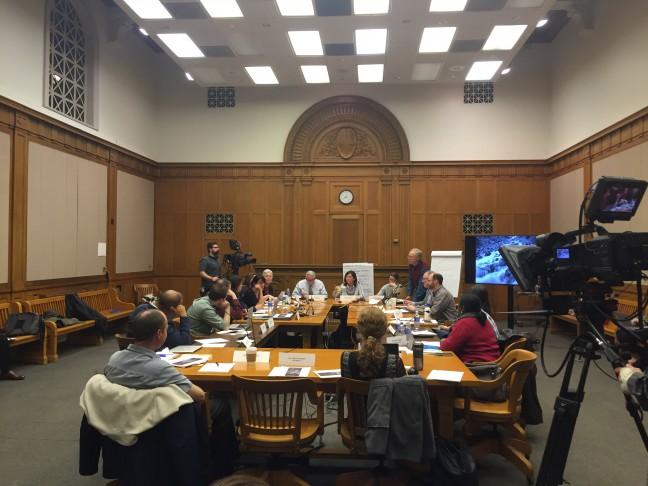Tuesday saw the latest installment of ongoing efforts within the City Council to reform appointment policies and structure of city committees.
The discussion focused on proposals by Ald. Mark Clear, District 19, and Ald. David Ahrens, District 15, which would remove the mayor from the Board of Estimates and give committee appointment power to the council rather than the mayor. The proposal has created a divide between some alders and the mayor, who sees the proposal as “stealth government” and a weakening of his power.
Unlike other council meetings, discussion sessions do not feature any voting or other actions. Council members instead spent the evening talking about the need for greater strength and governing power within the council.
Heather Allen, council legislative analyst, presented information on how other city governments across the country approach the issues of committee appointments.
Soglin, ‘secret six’ continue fight over mayoral balance of power
In Buffalo, New York, for instance, Allen said the mayor appoints four members of the finance committee while the council appoints five. Ald. Steve King, District 7, and others said they would be interested in exploring similar hybrid alternatives to Clear and Ahrens’ proposal.
There seemed to be broad consensus that the current system of appointing alders to the Board of Estimates makes for a weaker council. Ald. Marsha Rummel, District 6, said from her perspective, the mayor, who currently appoints all members, usually picks alders who mostly agree with his proposed budget. But some alders said the current system did allow for a faster, more efficient budget process.
Because of open meeting requirements, alders were unable to discuss issues not explicitly mentioned in the meeting agenda. This lead to dozens of instances in which alders referred to “bigger issues,” when alluding to possible major changes to the city government, Ald. Zach Wood, District 8, said.
Throughout the discussion, the council kept a running list of the issues they could not discuss at the meeting but plan to at future discussion sections, including problems with committee scheduling, location choices and access to dedicated council staff.
The council also asked a series of topics for Allen to research regarding the governance of other city governments, such as how they fair in terms of debt borrowing and whether they are run by a full time staff or not.
The meeting concluded with no real consensus other than that there should be a future meeting for further discussion on the “bigger issues.”













